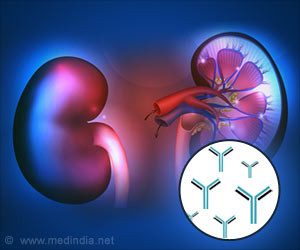Arizona physicians pioneer a new minimal invasive procedure that benefits dialysis patients. They presented data on the vascular access innovation at national nephrology conference.

‘New minimal invasive dialysis means no incisions, no scars, less trauma, quick, avoiding the need for surgery for chronic kidney disease patients.’
Read More..




Dr. Cooper, a board member of the Phoenix chapter of the National Kidney Foundation, is also a co-author on a recent position paper from ASDIN regarding patient selection for this revolutionary approach to dialysis patient care.Read More..
In Arizona, more than 10,000 people are currently on dialysis as a result of kidney failure - an increase of nearly 50 percent in the last decade. For these patients, many of whom must visit a dialysis center several times a week for their life-saving treatments, any improvement in quality of life can have a significant impact.
"The ability to create a minimally invasive dialysis access means no incisions, no scars and less trauma for the patient. Most people want to avoid surgery at all costs, but for patients with kidney failure who already spend so much of their life under a doctor's care, this technology offers a considerable quality of life impact," said Dr. Cooper.
"As soon as we learned about this novel technology, we knew we wanted to be able to offer this to our patients."
Nearly 100 kidney patients have now undergone the Ellipsys procedure at SKI Vascular Center. In 2015, Dr. Cooper and his partner Umar Waheed, MD, were among the first physicians to participate in the U.S. clinical trial and later co-authored an article on the study results showing the safety and efficacy of the Ellipsys system. SKI was the first surgery center in the United States to offer the Ellipsys System following its FDA approval in 2018.
Advertisement
Chandler-based data analyst Alex Kaplan, a 32-year old father of one, had his fistula created with Ellipsys in September 2019 and has been successfully using the fistula for dialysis three times a week since December 2019.
In addition to being more patient-friendly, recently published two-year data has shown this type of access may function better and last longer than the surgical method. Dr. Cooper's ASDIN presentation also suggests Ellipsys fistulas heal faster and can be ready to use for dialysis access sooner than surgical ones - potentially reducing the time from fistula creation to dialysis from six months to four to six weeks.
"For patients with kidney failure, this innovative procedure eliminates a lot of the hurdles they face in getting a fistula and actually being able to use it for dialysis," said Dr. Waheed. "Patients come in for a consultation and within a matter of days they are having the Ellipsys fistula created, and in some cases they've begun dialysis with that fistula in about a month."
Source-Eurekalert








